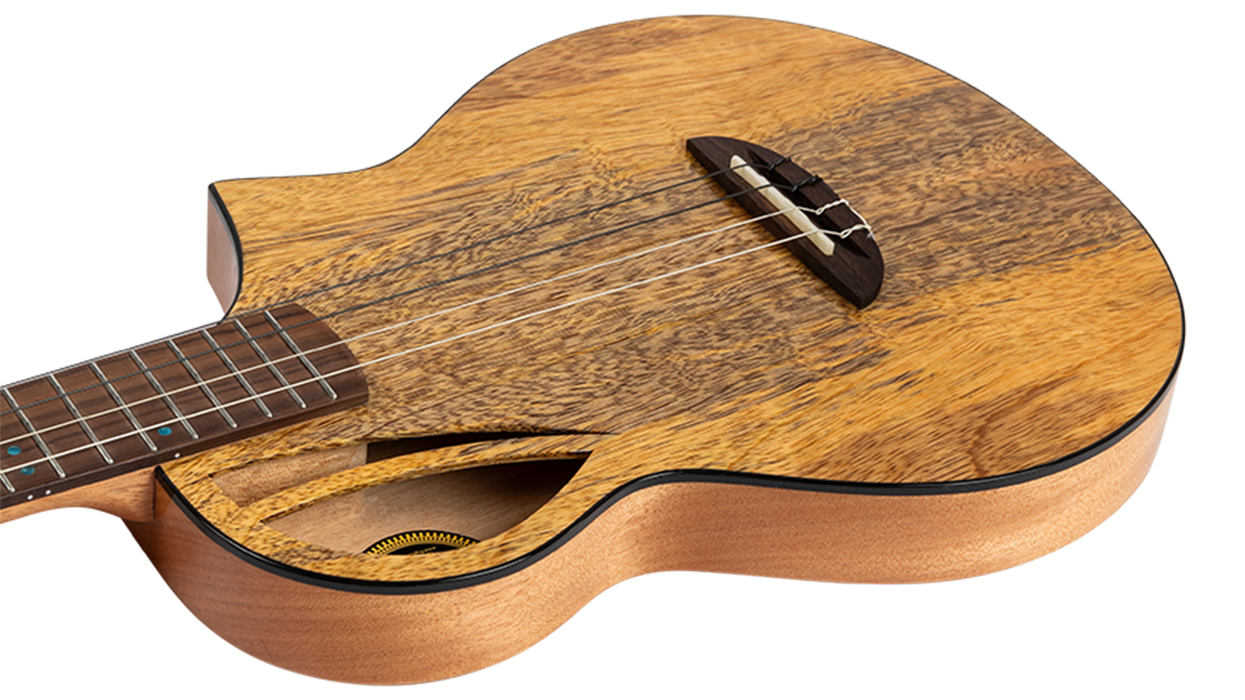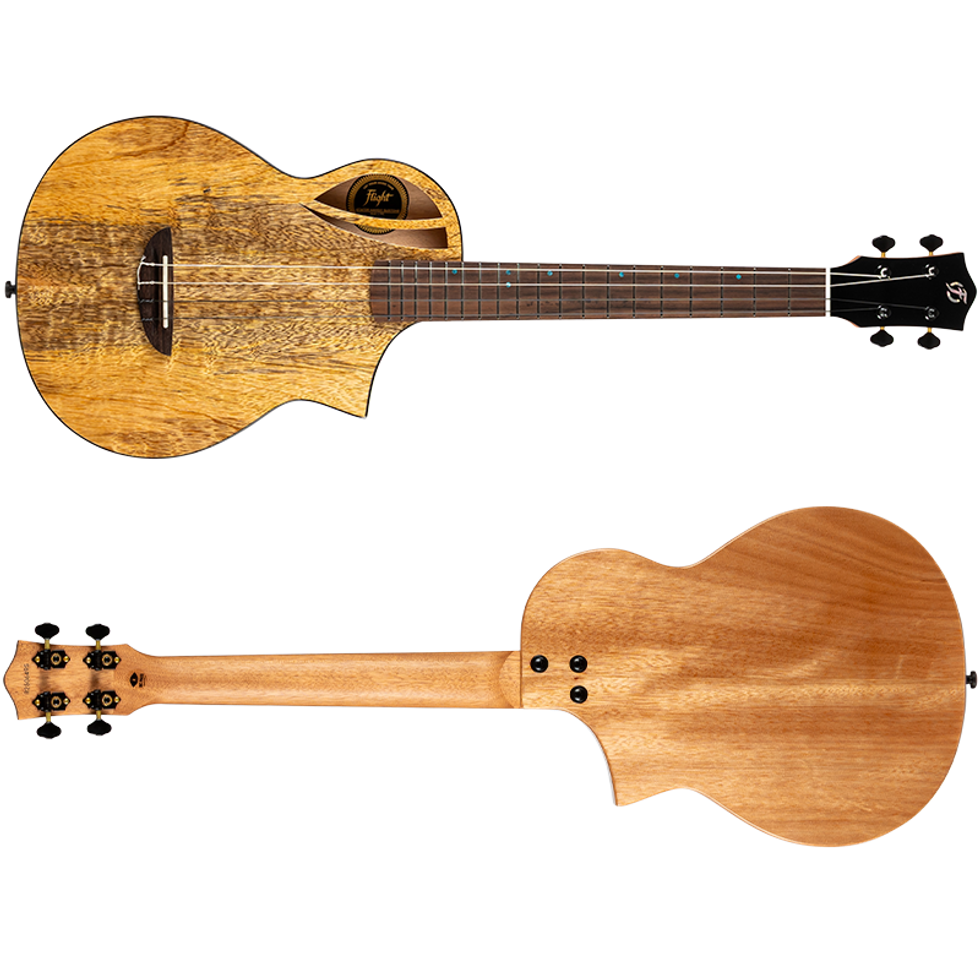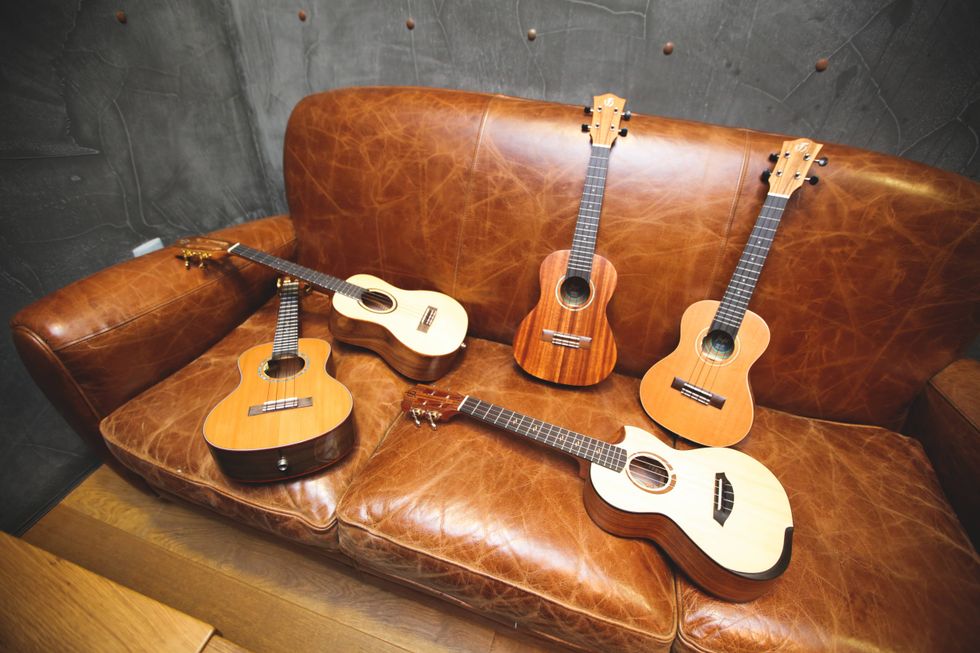In honor of James Egolf’s homebrewed Esquire, this month Assistant Editor Chris Kies takes a look at two websites that can help you build your own Holy Grail.
 DIY Network – Handmade Guitar Miniseries
DIY Network – Handmade Guitar Miniseries
While most television networks fill their half-hour slots with mind numbing reality television and commercials for things that we’ll never need (the PedEgg, anybody?), the DIY Network has finally done something useful with the medium. The network dedicated to helping people repair, build and do has finally ventured into luthier territory with a four-part special, hosted by Jeff Wilson, dedicated to walking viewers through the process of creating a high quality acoustic guitar. Previously only available to premium tier cable subscribers and satellite devotees, interested readers can now find info from the series online.
The installments are neatly structured in logical order: Introduction and Wood Selection; Top, Back and Inlays; Top, Bracing and Tone Bars; and so forth. The series features insightful contributions from Tennessee luthiers John Arnold, Ted Davis and Lynn Dudenbotsel, and they rely heavily on Martin’s classic D-28 for inspiration. As the gold standard of acoustics, the most desirable Martin models used Eastern red spruce – the choice of wood the three luthiers track down for their model. For those interested in the entire lifespan of a guitar, the network even includes footage of their treasure hunt into the mountains of West Virginia, all in the quest to find the perfect spruce.
While you cannot watch the episodes online (what’s the hold up, DIY?), the site includes enough step-by-step guidance and photography to help even the most novice of builders. What separates this series from any other build-your-own-guitar site is how fun it can be; one of our favorite parts was the inclusion of historical tidbits about the acoustic guitar, specifically the intertwining of Martin and the Ryman Auditorium. The ultimate highlight comes when Jeff Wilson displays a “Ryman Guitar,” which was built out of some of the auditorium’s original pews. Now that’s something I can pray to!
Start building at diynetwork.com.
 Roberto-Venn School of Luthiery
Roberto-Venn School of Luthiery
Who needs long-winded books and boring DVDs to build a guitar, when you can attend a school in a warm climate that dedicates its entire curriculum to such a process? If a little getaway sounds good to you, the Roberto-Venn School of Luthiery has offered renowned classes in luthiery since its inception in 1975. In 35-plus years of operation, over 1200 students have graduated from the Phoenix-based school, and many have gone on to do amazing things in the field.
The idea for a guitar making school grew out of an apprenticeship program that John Roberts (1921-1999) started in 1969, called the Juan Roberto Guitar Works; this followed an stint flying airplanes through the jungles of Nicaragua for a wood import company. In 1973, Bob Venn joined Roberts and brought electric guitar building expertise to the luthiery school.
While there isn’t a lot of strict how-to information here, the site has the potential to severely stoke the flames of your mid-life crisis. There’s a rundown of the classes the school offers – everything from building techniques to small business seminars – and stories of how in-demand graduates are once they graduate. The galleries showcase student and instructor work, with everything from traditional acoustics to sci-fi influenced guitars on display. All of this happens for students over the course of five months, meaning that a short sabbatical might be in your future.
The school continues to expand its offerings; a class dedicated to amp building is now also offered, and guest speakers – from Seymour Duncan and Gerry Kowalski of Taylor – stop by regularly. Considering that the school is accredited by the Accrediting Commission of Career Schools and Colleges of Technology (ACCSCT) – meaning that you are eligible for federal student aid – I wonder why I spent the past four years at a traditional university.
Go back to school at roberto-venn.com.
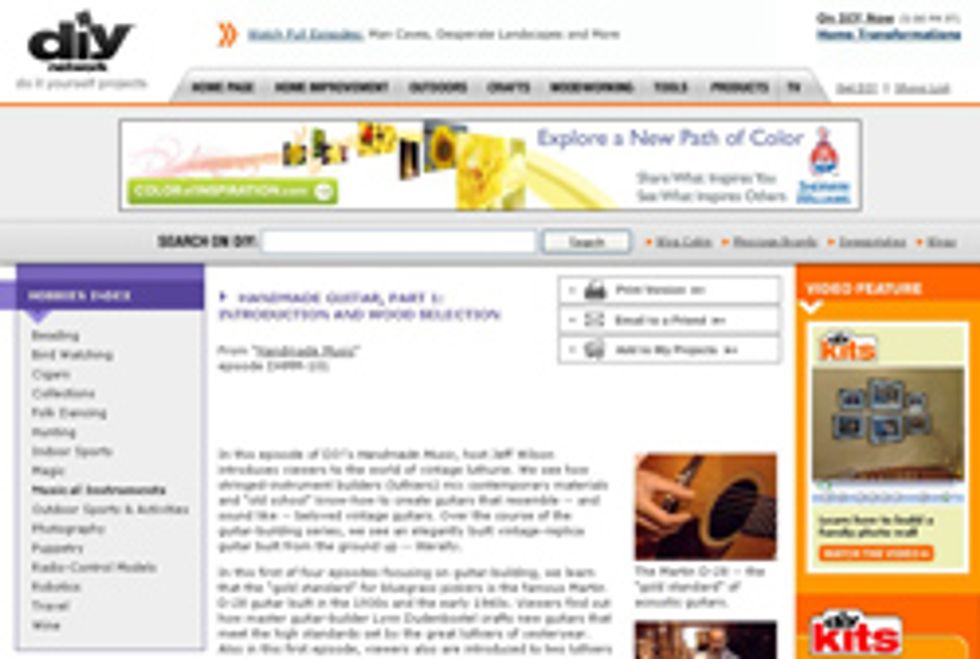 DIY Network – Handmade Guitar Miniseries
DIY Network – Handmade Guitar MiniseriesWhile most television networks fill their half-hour slots with mind numbing reality television and commercials for things that we’ll never need (the PedEgg, anybody?), the DIY Network has finally done something useful with the medium. The network dedicated to helping people repair, build and do has finally ventured into luthier territory with a four-part special, hosted by Jeff Wilson, dedicated to walking viewers through the process of creating a high quality acoustic guitar. Previously only available to premium tier cable subscribers and satellite devotees, interested readers can now find info from the series online.
The installments are neatly structured in logical order: Introduction and Wood Selection; Top, Back and Inlays; Top, Bracing and Tone Bars; and so forth. The series features insightful contributions from Tennessee luthiers John Arnold, Ted Davis and Lynn Dudenbotsel, and they rely heavily on Martin’s classic D-28 for inspiration. As the gold standard of acoustics, the most desirable Martin models used Eastern red spruce – the choice of wood the three luthiers track down for their model. For those interested in the entire lifespan of a guitar, the network even includes footage of their treasure hunt into the mountains of West Virginia, all in the quest to find the perfect spruce.
While you cannot watch the episodes online (what’s the hold up, DIY?), the site includes enough step-by-step guidance and photography to help even the most novice of builders. What separates this series from any other build-your-own-guitar site is how fun it can be; one of our favorite parts was the inclusion of historical tidbits about the acoustic guitar, specifically the intertwining of Martin and the Ryman Auditorium. The ultimate highlight comes when Jeff Wilson displays a “Ryman Guitar,” which was built out of some of the auditorium’s original pews. Now that’s something I can pray to!
Start building at diynetwork.com.
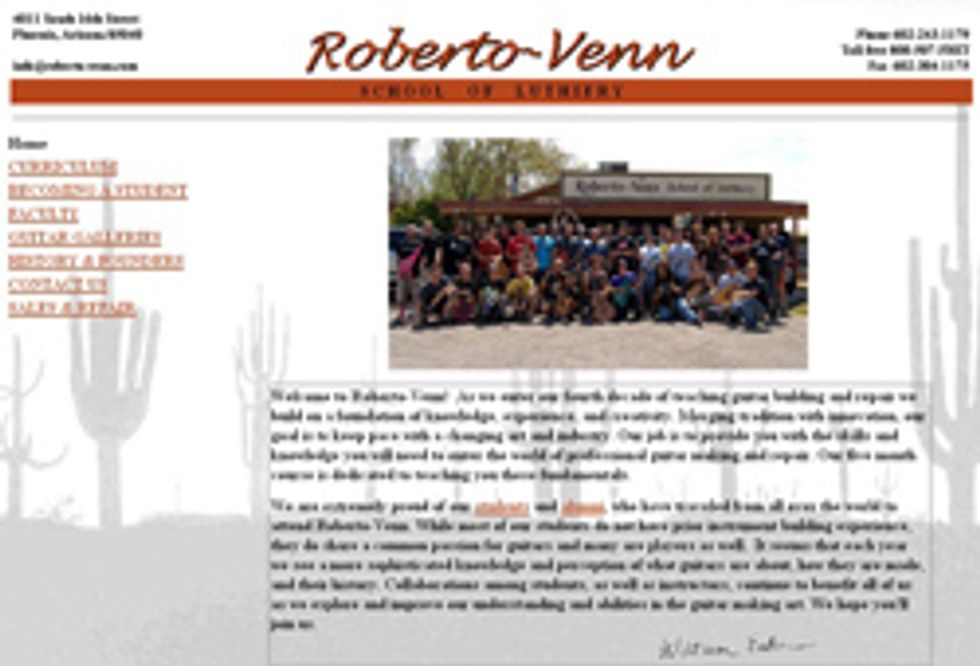 Roberto-Venn School of Luthiery
Roberto-Venn School of LuthieryWho needs long-winded books and boring DVDs to build a guitar, when you can attend a school in a warm climate that dedicates its entire curriculum to such a process? If a little getaway sounds good to you, the Roberto-Venn School of Luthiery has offered renowned classes in luthiery since its inception in 1975. In 35-plus years of operation, over 1200 students have graduated from the Phoenix-based school, and many have gone on to do amazing things in the field.
The idea for a guitar making school grew out of an apprenticeship program that John Roberts (1921-1999) started in 1969, called the Juan Roberto Guitar Works; this followed an stint flying airplanes through the jungles of Nicaragua for a wood import company. In 1973, Bob Venn joined Roberts and brought electric guitar building expertise to the luthiery school.
While there isn’t a lot of strict how-to information here, the site has the potential to severely stoke the flames of your mid-life crisis. There’s a rundown of the classes the school offers – everything from building techniques to small business seminars – and stories of how in-demand graduates are once they graduate. The galleries showcase student and instructor work, with everything from traditional acoustics to sci-fi influenced guitars on display. All of this happens for students over the course of five months, meaning that a short sabbatical might be in your future.
The school continues to expand its offerings; a class dedicated to amp building is now also offered, and guest speakers – from Seymour Duncan and Gerry Kowalski of Taylor – stop by regularly. Considering that the school is accredited by the Accrediting Commission of Career Schools and Colleges of Technology (ACCSCT) – meaning that you are eligible for federal student aid – I wonder why I spent the past four years at a traditional university.
Go back to school at roberto-venn.com.



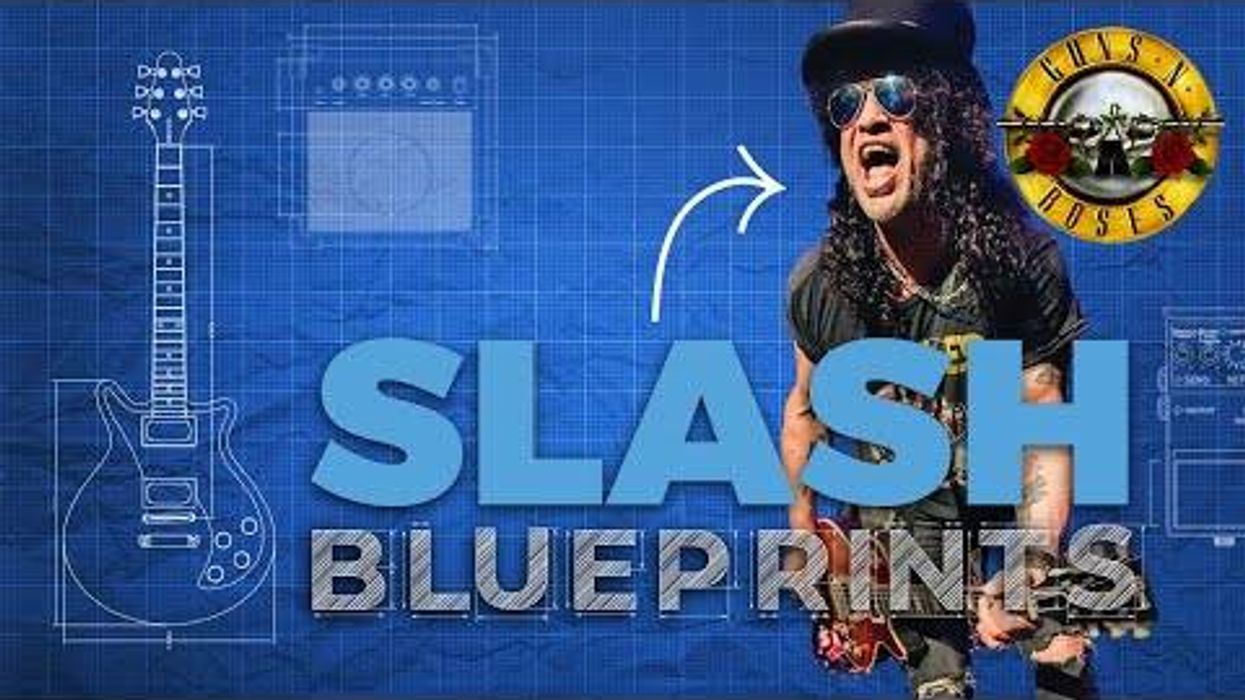



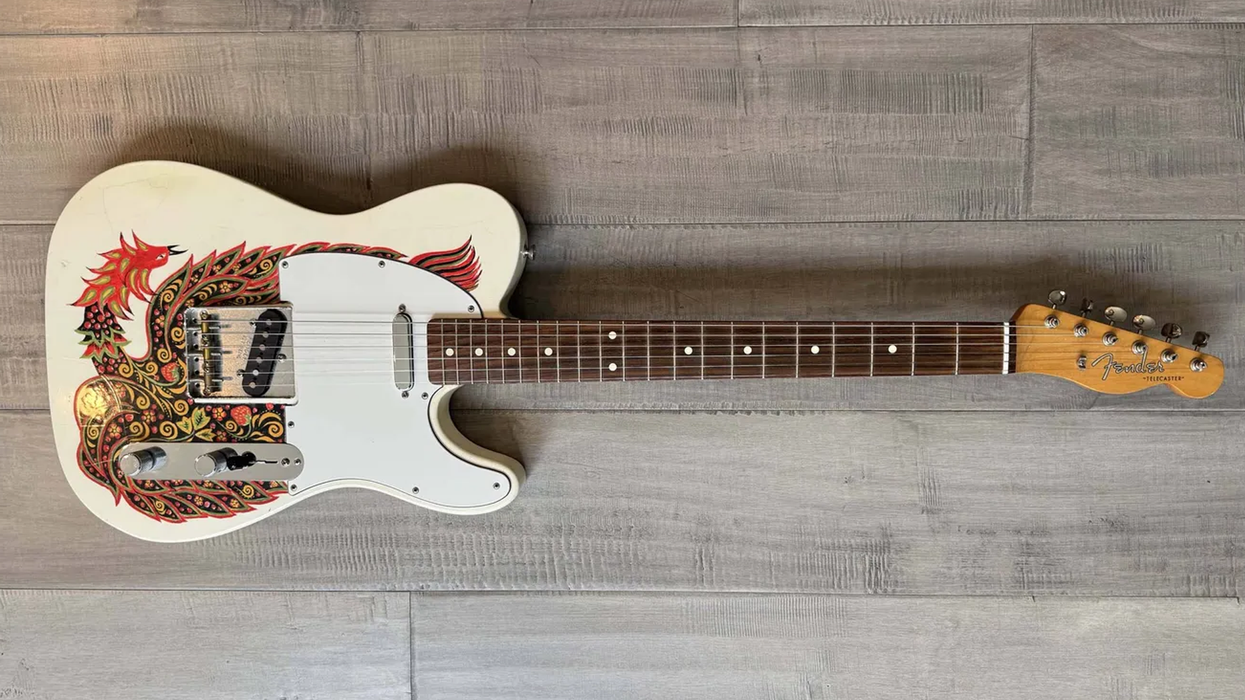
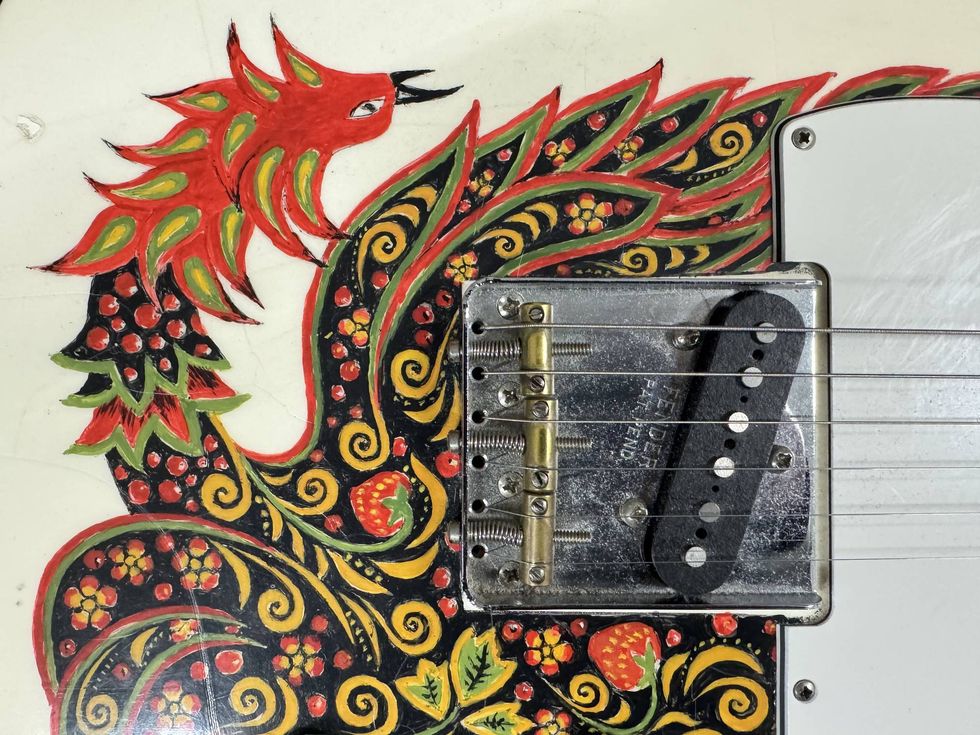


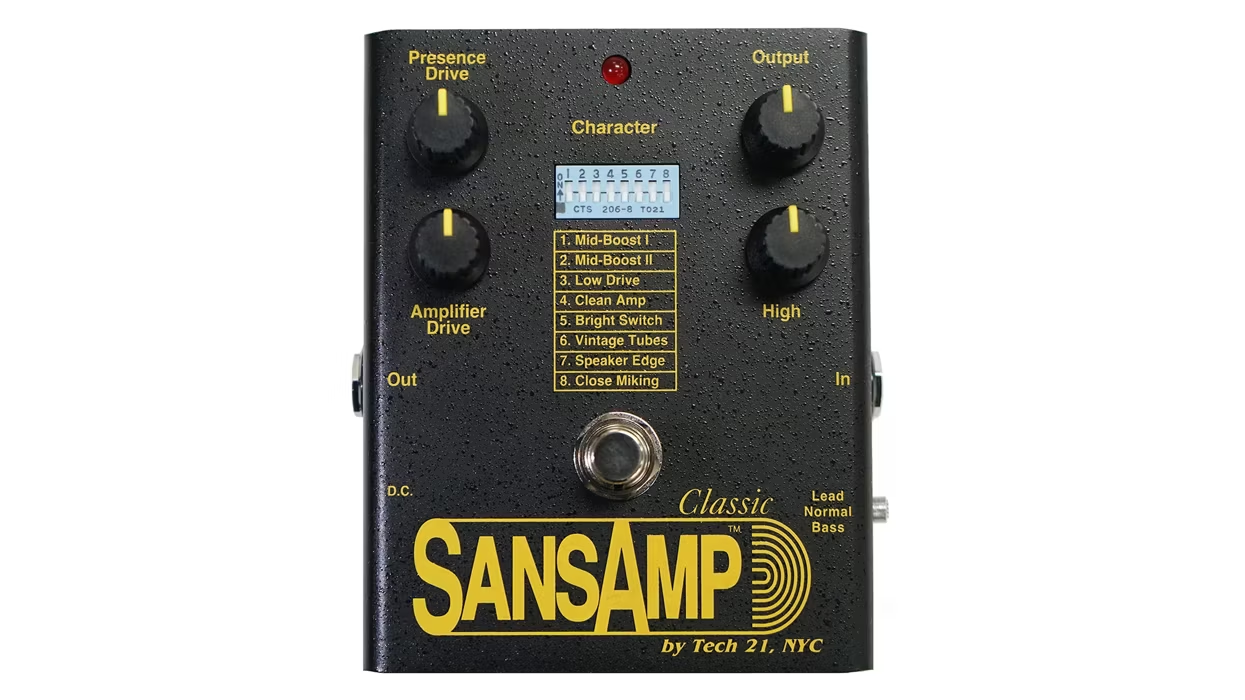
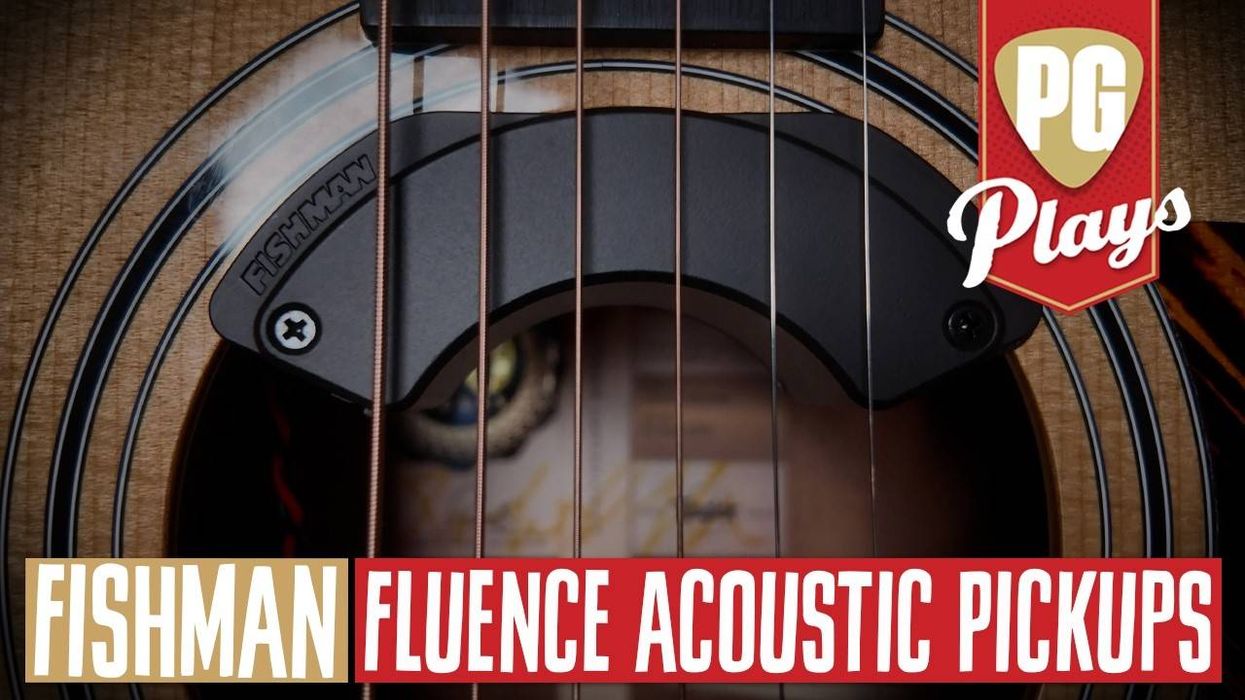

![Rig Rundown: Russian Circles’ Mike Sullivan [2025]](https://www.premierguitar.com/media-library/youtube.jpg?id=62303631&width=1245&height=700&quality=70&coordinates=0%2C0%2C0%2C0)
